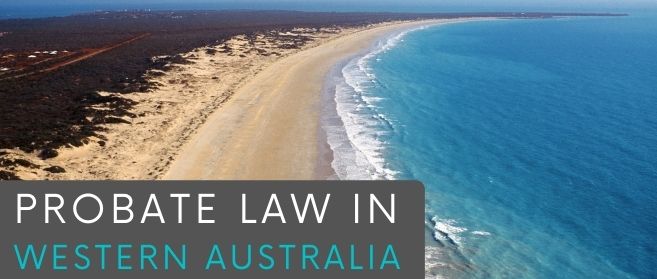
Probate Law in Yangebup – Western Australia
Note: Our Perth Probate Law Service Office is in East Perth & We Help Clients All Across Perth and WA.
What is a probate? Are you a Yangebup resident and need a probate?

To receive a grant of Probate in WA, there must be a Will made by a person (called a ‘testator’) that nominates another person to administer the Will (called an ‘executor’), which specifies which people are to benefit under the Will (called ‘beneficiaries’).
What is Probate in Western Australia?
Probate is a certificate granted by the Probate Office of the Supreme Court of Western Australia. Once a deceased Will has been validated and registered and the executor has been granted authority to administer the deceased estate, the Will is considered Probate.
I’m in Yangebup, how do I apply for Probate?
To obtain Probate of a Will in WA, an application must be made to the Supreme Court of Western Australia at any time after 14 days from the death of the deceased. The administration of the estate is a person entitled, a solicitor or executor, they are also able to make the application.
You or your lawyer can apply for a grant of Probate by preparing and filing an online application or by submitting an application in person at the Probate Office or by posting an application. Often these forms can become overwhelming, with the assistance of our lawyers we can ensure that the forms are filled out correctly.


Forms and rough cost guide for the forms
- Filing application for a grant of probate or administration $370
- Depositing a will of a deceased person $106
- Depositing a will or instrument under the Wills Act s.44(1) $106
- Copy of a Will or any other document per page $2.25
- Certificate fee $25.90
- Exemplification of a grant for settling a citation or a subpoena $133.50
- Search fee $54
The Online Application Form may not be suitable for applications where:
- There is no will or the will cannot be located;
- The will is not the original, that is, only a copy of the will can be found;
- You are not an executor named in the will;
- The will is not signed and witnessed; or
- The deceased had no assets in Western Australia.
If the above considerations are relevant to your application it is suggested that you seek independent advice from a lawyer such as Clairs Keeley. Legal restrictions prevent officers of the Supreme Court and the Probate Office from providing legal advice to you.
In general for most applications the Probate Office with issue grants of Probate in approximately 2 to 3 weeks.
Probate may take longer when more complex matters are involved. The Probate Office will require an inventory and valuation of assets and liabilities of the deceased at the time of death.
If a person has passed away without a valid Will, the court may grant Letters of Administration to a person who would be a beneficiary of the deceased’s estate. This person will usually be the deceased spouse, parents, siblings, children or grandchildren.


Letters of Administration and Letters of Administration with Will Annexed
If a deceased person has a Will but the Will does not name an executor or the executor named is not able or willing to apply for Probate, then the court may grant Letters of Administration with the Will Annexed to a person who would be a beneficiary of the deceased’s estate.
For Letters of Administration there are no standard forms, they are complex application and we recommend that applicants should seek the assistance of a lawyer.
After 14 days from the deceased’s death, these applications can be then made to the Supreme Court of Western Australia.
What is the executor’s role?
The executor’s role is to manage, administer, direct and dispose of property under the Will.
The executor’s duties include but are not limited to:
- Burying the deceased;
- Proving the Will by applying to the court for a grant of Probate or Letters of Administration;
- Administering the estate according to the law;
- Paying the debts of the estate; and
- Distributing the balance of the estate to the beneficiaries.
- Taking care of business interests;
- Safeguarding any income;
- Investing money not currently required;
- Collecting any valuables; and
- Making sure property is appropriately insured.


Furthermore, the executor will need to value the estate and keep a list of all the valuations. The estate may consist of the following:
- Cash;
- Business interests;
- Personal effects;
- Securities;
- Real estate;
- Property sales;
- Debts due; and
- Debts owing.
The executor is required to notify all the beneficiaries named in the Will that the deceased has passed away and what benefits they are entitled to under the Will.
The executor may also need to complete and lodge income tax returns and obtain a clearance from the Australian Tax Office. The executor must pay the debts of the estate before the distribution of any assets. Paying the debts of the estate may involve the executor having to sell assets of the estate.
What is the priority of payment of expenses once Probate is obtained?
Once the executor obtains a grant of Probate, the assets must first be collected before any payment from the estate is made. Funeral, testamentary and administration expenses have priority over all other payments.
Once this has occurred, the executor may pay the debts of the estate.
If the Will disposes of any property that has a mortgage, charge, lien or other money owing on it and the testator has not specified in the Will, by deed or in any other document how this is to be paid, then all the beneficiaries are primarily liable for discharging the debts before any distribution of the property.
When all debts have been paid the executor may then distribute the remaining assets amongst the beneficiaries according to the testator’s intentions.
If you want to know more about probate law, view more on our probate law Yangebup page.
If you are ready to talk to us today and get your probate application started to click we can help button on the right to fill out the form and get in touch with our experienced lawyers today.

Other Wills and Estate Services that we specialise in:

Family law in Perth Services:
Some Business Property Services for Yangebup
- Finance Broker Yangebup
- Business Asset Finance Solutions
- Perth Mobile Physiotherapy Yangebup
- Split System Air Conditioning Installer Yangebup
- Yangebup Emergency Plumber
- Airport Transfers Yangebup
- Business Tax Planning Accounting Yangebup
- Yangebup Property Management Service
- Locksmith Yangebup, Perth WA
- Settlement Agent Yangebup, Perth
Our Multi-Disciplinary Team Can Also Assist With
Contact Us
Clairs Keeley Lawyers are specialist Will Lawyers for Families from Yangebup and all across WA.
Please phone on (08) 9228 0811 or email us (Fill in the form on this page) to get quality advice.

